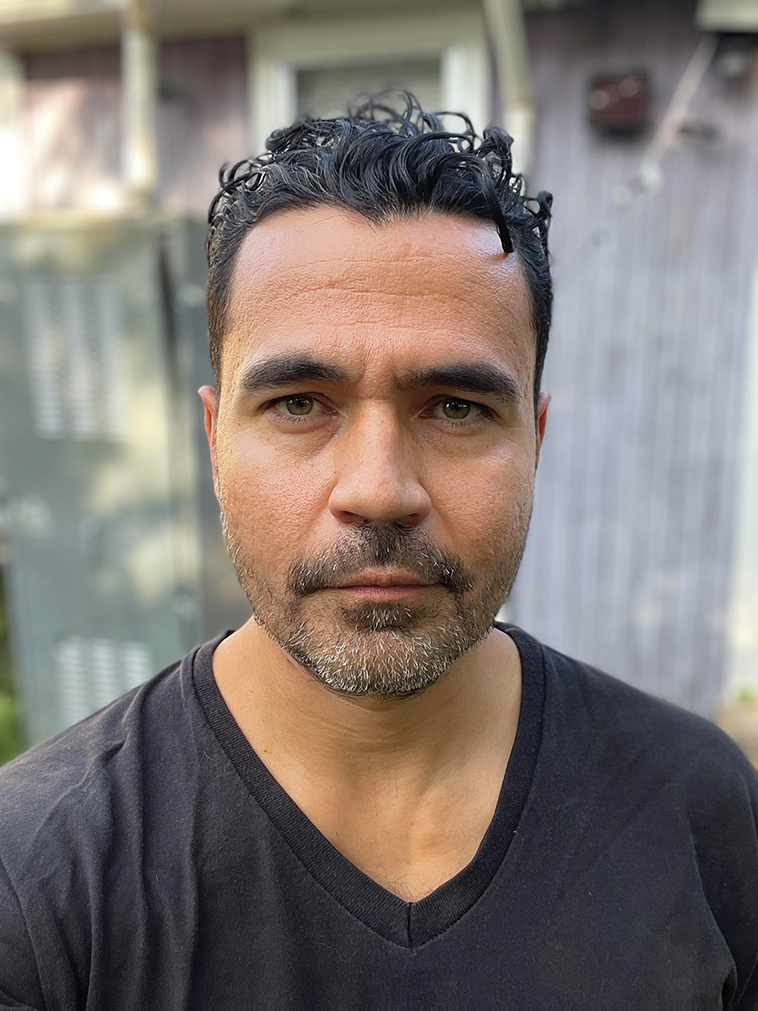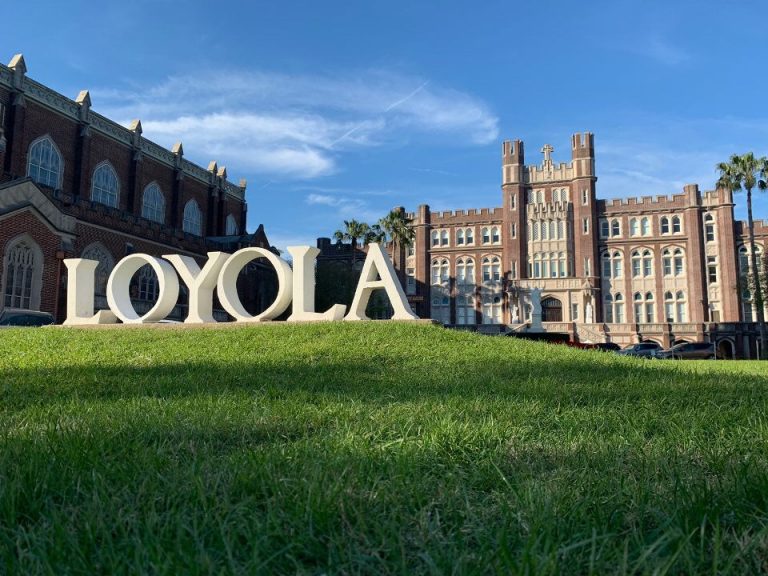I’d like to share an anecdote that I hope will comfort and empower those who have had similar experiences. I recently received an unsolicited email from someone I don’t know, a retired dean and professor at Tulane University. We’ll call him “Dr. X.” The message is cruel, insensitive, and ill-informed.
It is in reference to an interview I gave to the Times-Picayune | The New Orleans Advocate which was published on July 8, 2023. The article is about how I am personally affected by the Supreme Court’s decision to overturn President Joe Biden’s executive order to forgive a fraction of student loans. I tell the interviewer that I have loans, and that I am saddened by the decision because I’ve struggled financially since I was young. I also told him I came to this country when I was in elementary school. It is a very personal interview given during a time of great uncertainty.
A day later, I received a message from Dr. X in my professional inbox. He signed it with his name and his professional titles. Here is a paragraph verbatim in which he addresses me in the second person singular, in capital letters:
“The United States Supreme Court ruling did not ‘make you responsible for an extra $200 a month in loan payments’. YOU made yourself responsible when you signed the loan (contract) agreement and gave your word to repay it. I borrowed money in 1969 to go to college and I paid it off in full after 10 years. I had a wife, rent, car, food, etc., but I made it work and never expected my loan to be ‘forgiven’ when my brothers got jobs out of high school and never went to college. As adults, we have the right to seek loans to pay for many things but with that right comes the duty (and honor) pay off the loans as stipulated in the required legal contract we sign.”.
A 2021 Brookings Institute study found that the lowest-income students borrow more, and that student loan practices in the U.S. “reinforce the racial wealth gap.” According to the 2019 Survey of Consumer Finances, the average White family, at $188,200, has five times the wealth of the average Hispanic family. In other words, despite the fact that a college degree is needed to imagine upward mobility, college debt can contribute to financial instability. Additionally, minority folks like Black, Hispanic, American Indian, and Alaska Native fare worse than White people across several measures of health and health care, according to a 2023 study by the Keiser Family Foundation. The CDC has also recently categorized racism as a serious threat to the public’s health.
I suspect the following upbringing will resonate with many of my readers; I am an immigrant from Mexico, first generation, who grew up poor. Our food stamps were still on a physical booklet, whose paper coupons you’d give the cashier, like some sort of dystopian game. Statistically, I should not have a PhD and I should not be a professor, but I’ve followed a gossamer American Dream like, I presume, many of you.
I still believe that this country is the holder of many valuable principles worth fighting for. But, I do think that Dr. X’s message represents a racist and xenophobic worldview, even though he may not be aware of that. The situation comes across as an extremely privileged White man yelling at a Brown immigrant to pay the system, without acknowledging inequities that cut across racial and class lines. We now know that privilege often translates to inherited wealth, social advantages and benefits. The person is born with these characteristics, not earned.
Normally, I would ignore such a message, but I think his position of power makes his diatribe that much more insidious and worth addressing. He is well known for his views. My interview represents a moment of vulnerability meant to evoke humanity, not viciousness. There is certainly a place for dialogue about student loans and what we owe to each other, and a place for dialogue about the economic whims of processes like inflation, global recessions, and devastating pandemics. But, Dr. X’s analysis disregards phenomena like these. I think that those conversations are important to have, but unfortunately that is not what happened. His intention was not to engage in meaningful debate. The result of this metonymical event exemplifies a fortuitous opportunity to expound succinctly on relevant systemic concerns. Understanding these power dynamics, some steadfastness, and a little bit of kindness are needed to rectify socioeconomic inequalities especially as governmental leaders – at the local, state, and federal levels – continue to modify and uphold the law in order to prolong oppression against the most vulnerable. And while the latter consists of a heterogenous gender, race, and class spectrum, the common denominators lie in the gaps between the power holders and the people.
Colonialism and imperialism, as Frantz Fanon argued in “The Wretched of the Earth”, are deeply rooted in the Western bourgeoisie’s racism as an ideology that perpetuates their power. Capitalists are like “war criminals” who defer to practices like “deportation, massacres, forced labor, and slavery” to establish and maintain their wealth. The economically powerless are at the whims of the ruling classes.
Yet to disdain immigrants’ contributions to this country is to ignore reality. Anthony Bourdain once said that the entirety of the restaurant industry in the U.S. would collapse overnight if it weren’t for immigrants working hard in the back of the house. Agricultural fields have been worked by immigrants for decades, laying the foundations for indispensable farm produce production and consumption all across the country. Nonetheless, field harvesters and cultivators historically have had scarce wages and benefits, leaving the fight for these rights up to them by unionizing, striking, and boycotting. We tend to criminalize their worth.
As Cuauhtémoc César García Hernández put it, the U.S. has an obsession with locking up immigrants. Day laborers have built a myriad of houses in practically all the major cities for pennies on the dollar, leaving Florida construction companies scrambling when Governor Ron DeSantis signed off on Senate Bill 1718 in 2023 targeting undocumented workers. What is more, even those hypocritically advocating intolerance rely on this crucial force. Donald Trump’s businesses, as The Washington Post has reported, have hired undocumented workers as waiters, groundskeepers, and housekeepers for years, belying his public chauvinistic rhetoric disguised as patriotism.
Across the globe, a lack of concern for immigrants seeking shelter and a better life has resulted in unnecessary deaths that the media ignores. DeSantis and Trump represent leading conservative voices today in the U.S. that have influenced a radical right-wing shift in the country incapable of embracing difference. They portend a dark future for many of us, especially in the face of looming elections. But, power concedes nothing, as Frederick Douglass once wrote.
Why am I writing this open letter? I want to put people like Dr. X and the oppression he represents on blast. I consider Dr. X’s remarks nothing short of an act of microaggression, maybe vehement animosity, not only towards me – something I, like many of you, have experienced for a long time – but towards most of the country. I publicly denounce his disrespectful and inappropriate message.
I don’t mention his name simply because it is the behavior and rhetoric I wish to condemn. The aggressive narratives I’ve just written about threaten U.S. democracy to the extent that we value human rights. Furthermore, to my reader: if you are Brown, Black, LGBTQ+, Latinx, indigenous, poor, an immigrant, or a woman, you are not alone. I am sorry if you have been treated in a similar fashion and continue to be treated that way by our leaders.
We need to stay the course on breaking down structures of economic, political, and social subjugation, the same kind represented by the Confederate statues taken down in New Orleans a few years ago. Resistance – including allies – has proven to be intersectional in the fight for the Jesuit tenets of social justice, solidarity, and kinship. The values this country can represent in many ways to many of us are still those of kind heartedness and inclusion, embedded within those sacred foundational words: “We the People.” If we want a new reality, full of equity, equality, socio-economic justice, liberty, and a real shot at the pursuit of happiness, then we must continue to fight and have the hope that it can be done.
In solidarity,
Pablo Zavala












